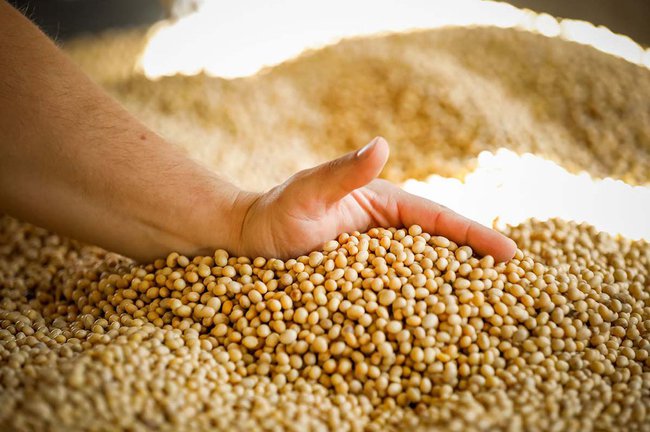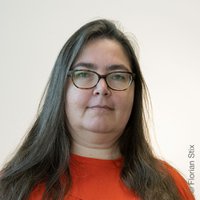A Digital Product Pass for the Soya Bean
Research Project DPP4Food Develops Prototype to Track Food Supply Chains

In future, so-called digital product passes should make it easier for companies and consumers to trace a product’s supply chain. This will increase the visibility of production conditions and push sustainable circular economy to the next level. The St. Pölten University of Applied Sciences coordinates a research project to develop a prototype of a digital product pass for food supply chains taking the soya bean as an example.
Food produced in an environmentally friendly way
The European Green Deal, the Green Claims Directive, the Circular Economy Action Plan, and the EU Supply Chain Act, which will enter into force in July 2025, seek to push circular economy practices to the next level and make information on production conditions and supply paths of products available to the public.
More transparency and better traceability of the supply chain can lead, e.g., to sustainably produced food of higher quality. The concept of the digital product pass (DPP) lays the groundwork for realising these efforts. The DPP is designed as a general framework for digital information storage, data validation, product tracking, and management within a single platform.
Integrating Complex Supply Chains
“There are several hurdles to overcome in the practical implementation of a digital product pass. On the one hand is the challenge of handling the complexity of supply chains. On the other hand is the need to ensure that the different technical systems and organisations can communicate with each other”, explains project lead Alexandra Anderluh of the Carl Ritter von Ghega Institute for Integrated Mobility Research at the St. Pölten UAS.
On top of this, the legal framework conditions resulting from the various systems have to be taking into account. When implementing the DPP, technologies such as distributed ledger technologies, blockchain, machine learning, artificial intelligence, and the Internet of Things are used.
“In our project, we develop a comprehensive concept and a lab prototype. For this, we connect with researchers who are already working on a digital product pass, and draw on national and European research initiatives on this topic to lay a solid foundation for our study” says Anderluh.
Engaging with Stakeholders
Active engagement with various food supply chain stakeholders is an important pillar of the project. Their knowledge and their contributions help the researchers shape their prototype and the underlying digital infrastructure according to the needs of the target group.
Support for Agriculture and Companies
“For farmers and small- and medium-scale enterprises in the food industry, keeping pace with the latest developments can be challenging. In particular, when it comes to digitalisation and the use of modern technologies. Not only does this create a competitive disadvantage, it also has a negative effect on the general acceptance of technologies”, says Anderluh.
Addressing these challenges by promoting research collaboration and innovation among small and medium-sized enterprises in Lower Austria is a central objective of the project. It aims to provide food production enterprises with better access to new technologies and the opportunity to adapt these technologies to their specific needs and test them.
Finally, the digital product pass has the potential to improve the collaboration with and among supply chain partners, thereby making a contribution to reducing the ecological footprint.
Sojarei Vollwertkost GmbH is the project’s partner. Bio Agrar Service, Biogast and FH Campus Wien support the project as third-party contractors. The project is funded by the Gesellschaft für Forschungsförderung Niederösterreich (GFF).
Projekt DPP4Food – Digitaler Product Pass for Food
Food Chain Supply Tracking and Tracing – The Case of the Soya Bean
Further information on the research project can be found on our research website.

FH-Prof. Dr. Alexandra Anderluh
Senior Researcher Carl Ritter von Ghega Institute for Integrated Mobility Research Department of Rail Technology and Mobility